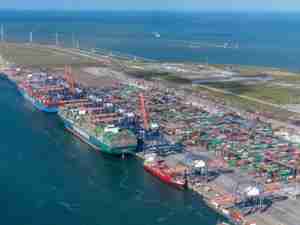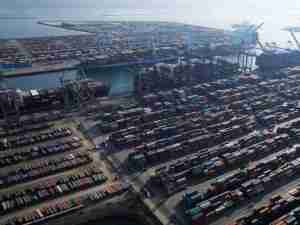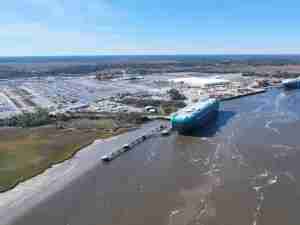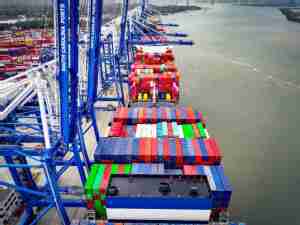"At night, ship lights made Tartous extend into a city on the sea; now it's like a small village. The port's sealine was full of vessels -- now the berths are nearly empty," said the shipper, who opened an agency in Tartous to cash in on a boom in traffic after the Iraq war wound down.
Street protests demanding the removal of Syria's President Bashar al-Assad, many of them bloodily suppressed, have shrunk traffic at the country's ports and damaged its hopes of capitalising on its position as a Middle East crossroads to grab a bigger share of transit business.
The exact extent to Syria's economy is being hurt by the unrest and resulting international sanctions is not clear; official data is scarce. But many analysts expect gross domestic product to decline this year, perhaps by several percent or more. At the start of this year, the International Monetary Fund predicted it would grow 3 percent.
Shippers and businessmen say exports have dropped as foreign customers have cut orders, while Syrian importers have delayed orders because of the uncertainty. Meanwhile, companies which used Syria as a conduit to conduct trade with other countries in the region are seeking different routes. Syria's principal port of Latakia, where the military deployed three months ago, has been hit hard along with Tartous.
"Even the Mediterranean cruise liners that came to Latakia and Tartous, and had hundreds of Italian and Spanish tourists, have not come this year," said the international shipper, who did not want to be named because of the sensitivity of the issue.
Falling Volumes
Shipping sources say traffic in general cargoes, dry and liquid bulk cargoes, and containers at Latakia and Tartous has been slipping since the uprising broke out in March. They estimate volumes shrank an average 35 to 40 percent from a year earlier in the first eight months of 2011.
"Importers and exporters are being very cautious, and that has led to imports of raw materials falling sharply as production slows down in many industries due to the troubles," a Syrian transportation official, who requested anonymity, told Reuters from Damascus.
Shipping agents and industry experts said container volumes, the vast majority of which are handled by Latakia, dropped in June alone by 36 percent from a year earlier to 33,527 twenty-foot equivalent units (TEU).
Official Latakia port figures for the April-June period show a drop of 16 percent from a year earlier, but industry sources said this data was misleading because it included many containers with empty space.
In Tartous, which handles most of Syria's bulk cargoes, or nearly 9 million tonnes of annual traffic in normal times, shipping sources said some European operators were avoiding the port after the European Union announced sanctions on Syrian oil exports at the start of September.
They said they were also seeing less business from Iraqi and other Arab traders who were deterred by the increasing checkpoints and roadblocks in many parts of Syria.
"We had 25 to 30 vessels daily arriving. This has dropped to between 10 to five daily," said a major shipping agent based in Tartous, referring to vessels between 8,000 and 35,000 tonnes.
So far, major regular shipping lines such as Danish firm Maersk, French-based CMA CGM, Geneva-based MSC, and Germany's Hamburg Sud have largely maintained normal vessel calls to Syrian ports despite lower cargo volumes, industry sources said.
Shipping agents say the companies are reluctant to pull out of a transit market that has served the whole region and still has great long-term potential because of its location.
"No major regular shipping lines are quitting at the moment. Once they withdraw from any service, it's very hard to restore," said Talal Halawani, a shipper whose Amman-based Liberty Ship










